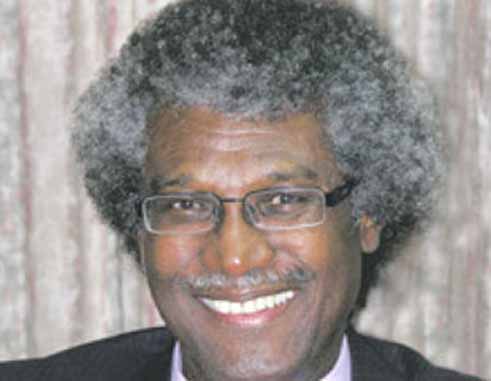BASSETERRE, ST. KITTS – The St. Kitts and Nevis economy once dubbed by the late Eastern Caribbean Central Bank (ECCB) Governor, Sir K. Dwight Venner, as the “one bright spot in the ECCU” under the Dr. Denzil Douglas-led St. Kitts-Nevis Labour Party (SKNLP) administration, is no longer glowing under the Team Unity Government (TUG) of Dr. Timothy Harris.
During Antigua and Barbuda’s Budget Day last Friday, Prime Minister Gaston Browne credited Antigua and Barbuda’s exceptional growth rate of 4.3% in 2016 as the greatest rate of all of the Caribbean Community (CARICOM) countries.
Browne’s statement confirmed what St. Kitts and Nevis’ Leader of the Opposition, Dr. Denzil Douglas, said in December, that the St. Kitts and Nevis economy was worsening under the Team Unity government.
“The economic situation in our country is getting worse when compared to what it was under the St. Kitts-Nevis Labour Party administration when it left office in February 2015. The economy is worsening and it continues to deteriorate. The economy is contracting. The growth rate in the economy was doing so well to grow us out of the serious international economic and financial crisis experienced in 2008.
That rate of growth is now decelerating and not accelerating as the Team Unity government wants us to believe,” Dr. Douglas said.
Browne said the Antigua and Barbudan economy had shown such spectacular growth in 2016 due to strategic and sustainable policies that have created a stable economic climate of very low inflation and robust growth and development.
He said the remarkable growth figure of 4.3% is not his government’s number.
“It is the latest findings of the Eastern Caribbean Central Bank. This is truly an exceptional achievement and one that I know that this Honourable House will want to recognize and applaud,” Prime Minister Browne told the Antigua Parliament.
According to statistics on ECCB’s website, the growth rate for St. Kitts and Nevis in 2016 was estimated to be 3.02 percent.
While addressing the 17th Annual National Consultation on the St. Kitts and Nevis Economy, Sir Dwight said that the performance of the economy of St. Kitts and Nevis since 2013 had been very encouraging and had been the bright spot in the Eastern Caribbean Currency Union (ECCU) as the sub-region continued to be affected by the global crisis.
He told stakeholders at the time that the St. Kitts and Nevis economy under the St. Kitts-Nevis Labour Party administration was performing better than the other member countries in the ECCU and had successfully executed the first five of an 8-point programme.
Governor Venner said then that the performance by St. Kitts and Nevis was indicative of what was possible if the conduct of the economic policies is carried out within the conceptual framework of a broad macro-economic framework which addresses not only adjustment, but also a growth stimulus and social safety nets which address those who are least capable of defending themselves in difficult circumstances, and preparing them where possible for gainful employment in the economy.
The five points then Governor Venner listed were Financial Programming, Fiscal Reform, Debt Management, Public Sector Investment Programming and Social Safety Nets.
Based on projections, Sir Dwight said the St. Kitts and Nevis economy was expected to move to five to seven percent from about 2017.
However, ECCB statistics indicate that the St. Kitts and Nevis economy continued to slide from 4.88 percent in 2015 to an estimated 3.02 percent in 2016 with a projection of 3.78 percent in 2017 and 3.85 percent in 2018.






![Attendees at the UHC logo and website launch [Photo credit: GOSL]](https://thevoiceslu.com/wp-content/uploads/2026/02/Attendees-at-the-UHC-logo-and-website-launch-380x250.jpg)






![Remnants of an alleged drug boat blown up in a lethal strike by the U.S. military last week surfaced off Canouan on Saturday [Photo credit : St Vincent Times]](https://thevoiceslu.com/wp-content/uploads/2026/02/Remnants-of-an-alleged-drug-boat-blown-up-380x250.jpg)

1 Comment